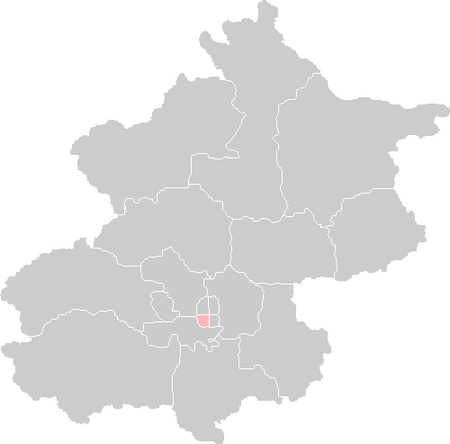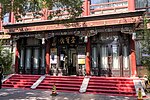Xuanwu District, Beijing

Xuanwu District (simplified Chinese: 宣武区; traditional Chinese: 宣武區; pinyin: Xuānwǔ Qū) was a district of the Municipality of Beijing, China. It was located southwest to the city center, outside of Xuanwu Gate. The district was merged into Xicheng District in July 2010. Located outside the Imperial Inner City and predominantly reserved for the lower class, the district was over 16.5 km2 in size. Although historically considered a wealthy area of Beijing as one of the older districts of the former Imperial City, Xuanwu District underwent rapid changes in its recent history leading up its merger into Xicheng District. The area was also the birthplace of Peking Opera and housed the Caishikou Execution Grounds during the Qing Dynasty. Xuanwu District had a large Muslim population. Popular destinations in Xuanwu District include: Niujie Mosque Fayuan Temple Liulichang—an antiques market Huguang Guild Hall
Excerpt from the Wikipedia article Xuanwu District, Beijing (License: CC BY-SA 3.0, Authors, Images).Xuanwu District, Beijing
百合园胡同, Xicheng District Dashilan (首都功能核心区)
Geographical coordinates (GPS) Address Nearby Places Show on map
Geographical coordinates (GPS)
| Latitude | Longitude |
|---|---|
| N 39.894262 ° | E 116.382425 ° |
Address
百合园胡同
百合园胡同
100032 Xicheng District, Dashilan (首都功能核心区)
Beijing, China
Open on Google Maps









